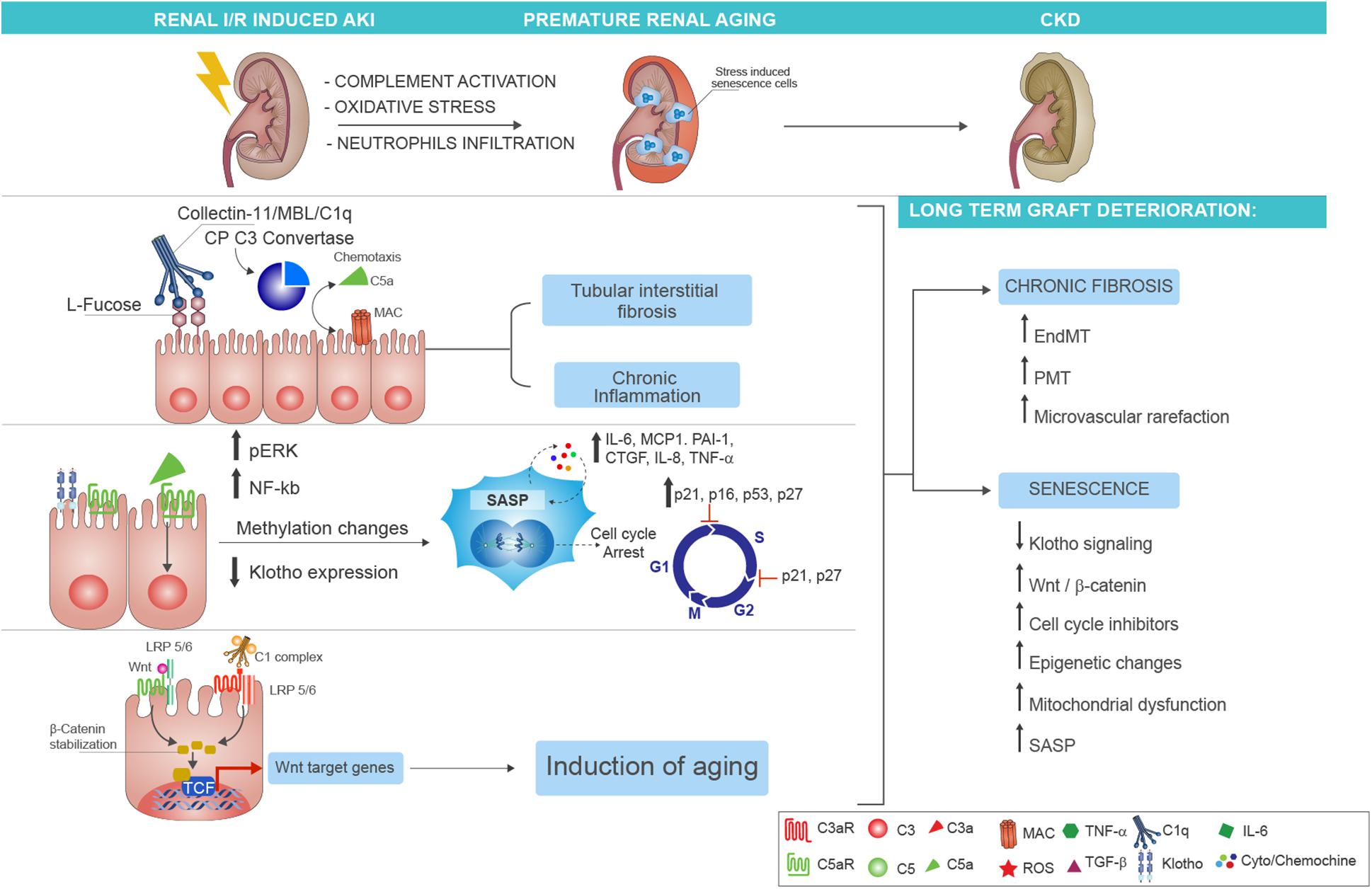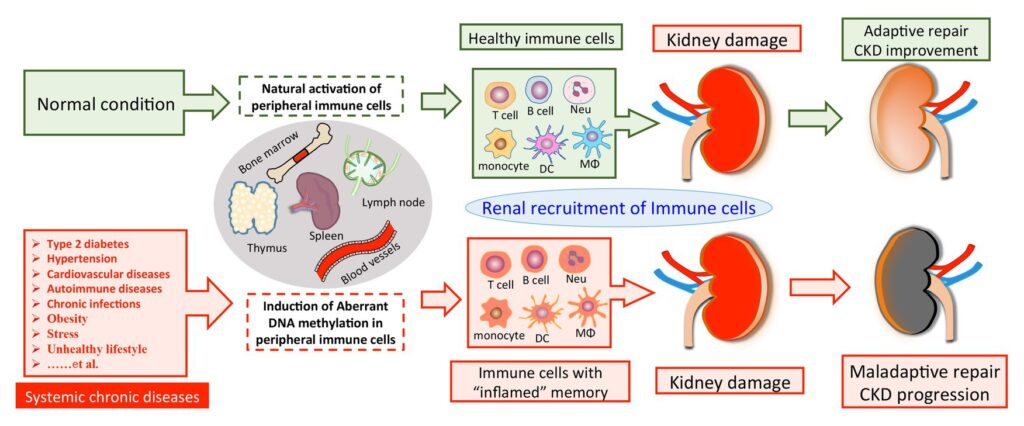Kidney inflammation, also known as nephritis, is a condition that affects the kidneys’ ability to function properly. Nephritis can lead to serious health complications if not addressed promptly. Understanding its causes, recognizing its symptoms, and knowing how to manage it are essential for maintaining kidney health. This article delves into the details of this condition, offering insights into its origins, signs, and care strategies.

What is Kidney Inflammation?
Kidney inflammation refers to the swelling and irritation of the kidney tissues. The kidneys play a vital role in filtering waste products, excess substances, and toxins from the blood. When these organs become inflamed, their ability to perform these functions diminishes, leading to a buildup of harmful substances in the body. Kidney inflammation can affect one or both kidneys and may occur suddenly (acute) or develop over time (chronic).
Types of Kidney Inflammation
- Glomerulonephritis: A condition where the tiny filters in the kidneys, called glomeruli, become inflamed.
- Interstitial Nephritis: Inflammation that occurs in the spaces between the kidney tubules.
- Pyelonephritis: An infection that causes inflammation in the kidney and the upper urinary tract.
Causes of Kidney Inflammation
The causes of kidney inflammation vary depending on the type and underlying conditions. Some common factors include:
Infections
Bacterial infections, particularly those affecting the urinary tract, can spread to the kidneys and cause inflammation. For instance, untreated bladder infections may ascend to the kidneys, resulting in pyelonephritis. Viral infections, such as hepatitis or human immunodeficiency virus, can also contribute to kidney inflammation.
Autoimmune Disorders
Autoimmune diseases occur when the immune system mistakenly attacks healthy tissues. Conditions like lupus and IgA nephropathy can trigger inflammation in the kidneys. In these cases, the immune system targets the glomeruli, impairing their filtration capabilities.
Medications and Toxins
Certain medications, such as nonsteroidal anti-inflammatory drugs and antibiotics, can irritate the kidneys and lead to inflammation. Exposure to toxic substances, including heavy metals and industrial chemicals, can also harm kidney tissues.
Underlying Health Conditions
Chronic conditions like diabetes and high blood pressure are significant contributors to kidney inflammation. These conditions damage blood vessels in the kidneys, reducing their efficiency and increasing the risk of inflammation.
Symptoms of Kidney Inflammation
Recognizing the symptoms of kidney inflammation is crucial for early diagnosis and treatment. While some individuals may experience mild symptoms, others may face severe manifestations. Common signs include:
Changes in Urination
- Frequent urination, especially at night
- Pain or burning sensation during urination
- Blood in the urine, which may appear pink, red, or cola-colored
- Foamy or bubbly urine due to excess protein
Swelling
Inflammation in the kidneys can lead to fluid retention, causing swelling in various parts of the body. Common areas affected include the face, hands, feet, and ankles. This swelling, also known as edema, is often one of the first noticeable signs of kidney problems.
Fatigue and Weakness
When the kidneys are inflamed, they struggle to remove waste products from the blood. This buildup of toxins can cause persistent fatigue and weakness. Additionally, anemia, which is common in individuals with kidney issues, can exacerbate these symptoms.
Hypertension
Kidney inflammation often leads to elevated blood pressure levels. The kidneys play a key role in regulating blood pressure, and when they are compromised, hypertension may develop or worsen.
Flank Pain
Individuals with kidney inflammation may experience pain in the sides or back, near the location of the kidneys. This discomfort is often described as a dull ache or sharp pain and may be accompanied by fever or chills in cases of infection.
Diagnosing Kidney Inflammation
To diagnose kidney inflammation, healthcare providers rely on a combination of physical examinations, laboratory tests, and imaging studies. These diagnostic tools help determine the type and severity of the condition.
Laboratory Tests
- Urine Analysis: Detects abnormalities such as blood, protein, or pus in the urine.
- Blood Tests: Measure levels of waste products like creatinine and urea in the blood.
- Immunological Tests: Identify antibodies or immune complexes associated with autoimmune kidney diseases.
Imaging Studies
Ultrasound, computed tomography scans, and magnetic resonance imaging are commonly used to visualize the kidneys and detect structural abnormalities or obstructions.
Kidney Biopsy
In some cases, a small sample of kidney tissue may be removed for microscopic examination. This procedure helps confirm the diagnosis and identify the specific type of kidney inflammation.
Treatment and Management
The treatment of kidney inflammation depends on its underlying cause and severity. Early intervention is critical to prevent permanent kidney damage. Treatment options include:
Addressing the Underlying Cause
If an infection is responsible for the inflammation, antibiotics or antiviral medications may be prescribed. For autoimmune-related conditions, immunosuppressive drugs can help reduce the immune system’s activity and alleviate inflammation.
Lifestyle Modifications
Making certain lifestyle changes can significantly improve kidney health. These include:
- Adopting a low-sodium, low-protein diet to reduce the kidneys’ workload
- Staying hydrated to flush out toxins
- Avoiding alcohol and tobacco, which can worsen kidney function
- Managing chronic conditions like diabetes and hypertension through medication and regular monitoring
Medications
In addition to treating the root cause, medications may be prescribed to manage symptoms and complications. Diuretics can help reduce swelling, while blood pressure medications protect the kidneys from further damage.
Dialysis and Transplant
In severe cases where kidney function is severely impaired, dialysis or a kidney transplant may be necessary. Dialysis involves using a machine to filter waste products from the blood, while transplantation replaces the damaged kidney with a healthy donor organ.
Preventive Measures
Preventing kidney inflammation involves adopting habits that promote overall kidney health. Some effective strategies include:
- Drinking plenty of water to maintain proper hydration
- Avoiding excessive use of over-the-counter pain relievers
- Practicing good hygiene to prevent urinary tract infections
- Regularly monitoring blood pressure and blood sugar levels
- Scheduling routine check-ups with a healthcare provider
When to Seek Medical Attention
It is important to seek medical attention if you experience any of the following:
- Persistent swelling in the face, hands, or legs
- Blood in the urine
- Severe flank pain accompanied by fever
- Unexplained fatigue or weakness
Early diagnosis and treatment can prevent complications and improve outcomes for individuals with kidney inflammation.





